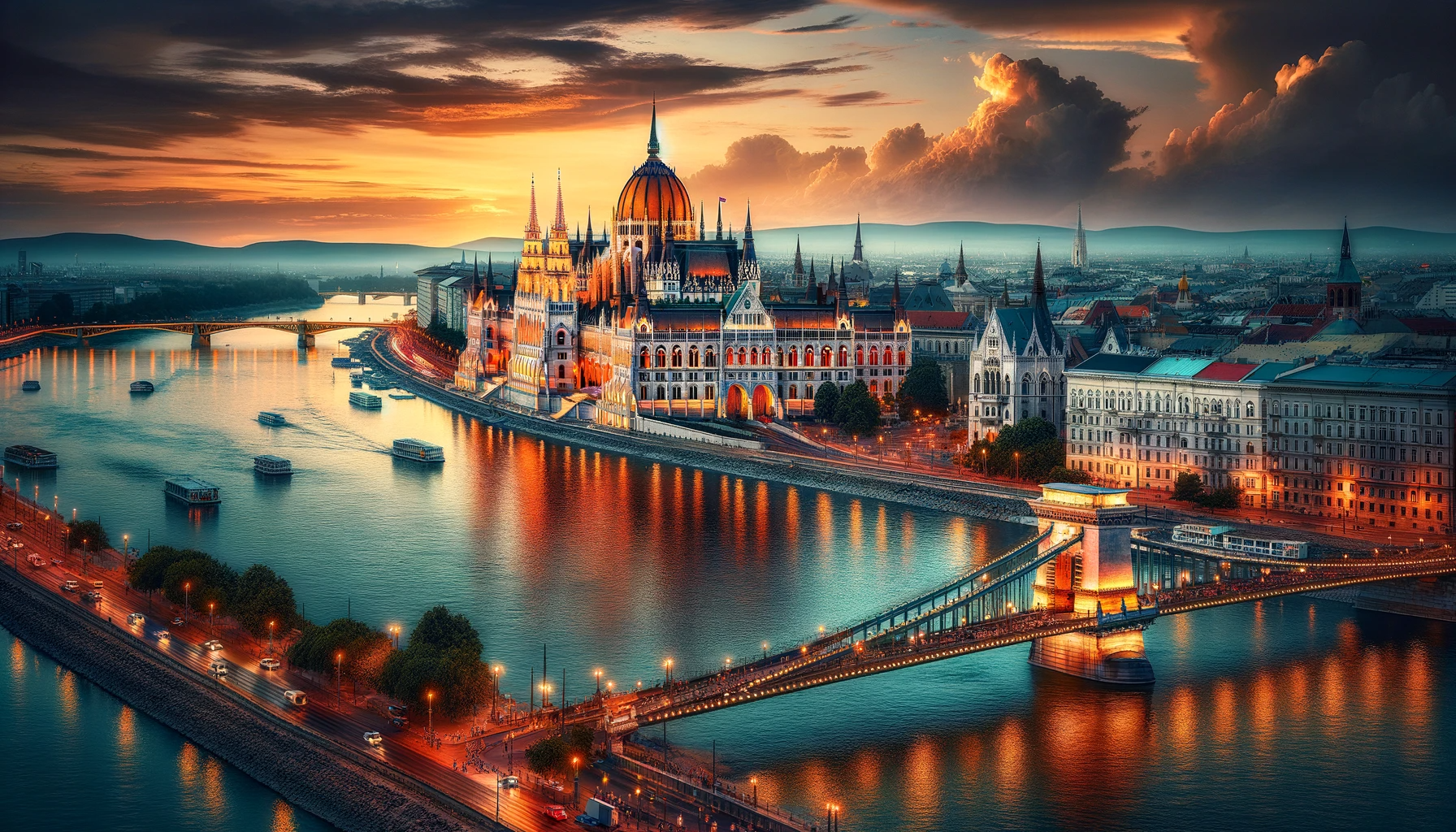Hungary is a nation with a deep historical legacy, rich cultural traditions, and a dynamic modern society. It continues to play a significant role in Central Europe, balancing its rich past with contemporary development.
List of National and Public Holidays in Hungary for the year 2024
- New Year’s Day – Monday, 1. January 2024
- Revolution Day – Friday, 15. March 2024
- Good Friday – Friday, 29. March 2024
- Easter Monday – Monday, 1. April 2024
- Labour Day – Wednesday, 1. May 2024
- Whit Monday – Monday, 20. May 2024
- Saint Stephen’s Day – Tuesday, 20 August 2024
- Republic Day – Wednesday, 23. October 2024
- All Saints’ Day – Friday, 1. November 2024
- Christmas Day – Wednesday, 25. December 2024
- 2nd Day of Christmas – Thursday, 26. December 2024

History
- Early History and Settlement: Inhabited since ancient times, Hungary’s history is notably shaped by the Magyar tribes who settled in the Carpathian Basin in the 9th century.
- Kingdom of Hungary: Became a Christian kingdom under King Stephen I in the year 1000. A regional power during the medieval era.
- Ottoman Rule and Habsburg Monarchy: Partially occupied by the Ottomans in the 16th century, later became part of the Austro-Hungarian Empire until World War I.
- 20th Century: Post-World War I Treaty of Trianon led to significant territorial losses. World War II and subsequent Soviet influence defined its mid-20th-century history.
- Transition to Democracy: Following the fall of communism in 1989, Hungary transitioned to a market economy and parliamentary democracy.
Geography
- Location: Landlocked in Central Europe, bordered by Austria, Slovakia, Ukraine, Romania, Serbia, Croatia, and Slovenia.
- Landscape: Dominated by the Great Hungarian Plain in the east, hills and mountains to the north, and the Lake Balaton region.
- Danube and Tisza Rivers: Major rivers that are integral to Hungary’s geography and economy.
Culture
- Cultural Identity: Rich cultural heritage influenced by various ethnic groups and conquerors throughout its history.
- Folk Traditions and Festivals: Known for vibrant folk traditions, including music, dance, and festivals that celebrate Hungarian culture and history.
- Cuisine: Hungarian cuisine is famous for its flavors and spices, particularly the use of paprika. Notable dishes include goulash, pörkölt (stew), and lángos (fried dough).
Economy
- Post-Communist Economy: Transitioned from a centrally planned economy to a market-driven one, with significant growth in sectors like manufacturing, IT, and services.
- Agriculture: Historically an agrarian economy, with fertile soils and a favorable climate. Major products include wheat, corn, sunflower oil, and wine.
- Tourism: A growing sector, with Budapest, thermal baths, and the Danube River as major attractions.
Society
- Demographics: Predominantly ethnic Hungarians, with minority groups including Roma, Germans, and others.
- Urbanization: Budapest, the capital and largest city, is a cultural and economic center. Other major cities include Debrecen, Szeged, and Pécs.
- Education and Healthcare: Hungary has a well-developed education system and universal healthcare, with ongoing reforms and modernization efforts.
Environmental Focus
- Natural Resources and Conservation: Rich in biodiversity, with national parks and protected areas like Hortobányi National Park and the Danube Drava National Park.
- Environmental Challenges: Facing challenges like water management, pollution, and the impacts of climate change.
Infrastructure and Technology
- Transport and Infrastructure: Well-developed infrastructure with an extensive road and railway network. Ongoing investments in public transportation and road development.
- Technology and Innovation: Rapid growth in the technology sector, with a focus on IT, telecommunications, and innovation.
Traditional Festivals and Celebrations
- Cultural Festivities: Hosts numerous traditional festivals, including Easter celebrations, wine festivals, and the Budapest Spring Festival.
International Relations
- EU Membership: Joined the European Union in 2004, playing an active role in European affairs.
- Global Partnerships: Engages in international diplomacy, balancing its historical ties with neighboring countries and broader global partnerships.

